Life
Sign up for our newsletter
We summarize the week's scientific breakthroughs every Thursday.
-
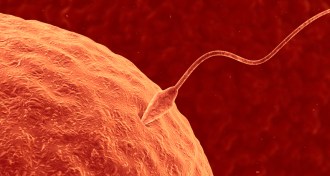 Life
LifeMales compete all the way to sperm shape
An association between the ratio of certain proteins in mouse sperm and sexual competition raises many questions about what exactly gives a sperm a good head.
-
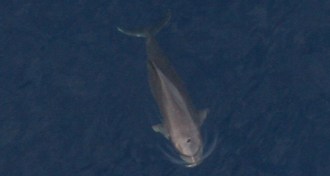 Animals
AnimalsSmall sperm whale species share a diet
Dwarf and pygmy species of sperm whales overlap in what they eat, and that could be a problem as the food web changes around them.
-
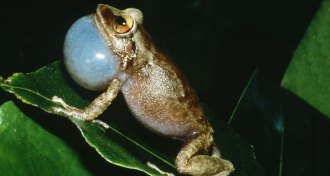 Animals
AnimalsCoquí frogs got smaller, squeakier as climate warmed
As temperatures climbed in Puerto Rico, the calls of male coquí frogs became higher pitched.
By Susan Milius -
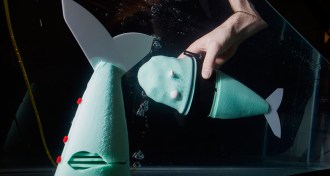 Tech
TechSoft robots go swimming
A new robotic fish can wiggle and writhe like the real thing.
By Meghan Rosen -
 Life
LifeCommon lung infection suffocates with single protein
A Respiratory Syncytial Virus, or RSV, protein creates clumps of dead, bloblike lung cells.
By Beth Mole -
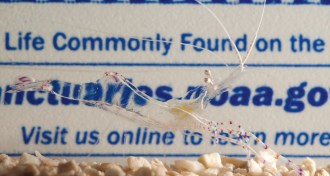 Animals
AnimalsSee-through shrimp flex invisible muscle
Much of the body of a Pederson’s transparent shrimp looks like watery nothing, but it’s a superhero sort of nothing.
By Susan Milius -
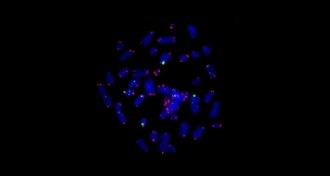 Health & Medicine
Health & MedicineChanges in kids’ genomes linked to chronic stress
In a study of 40 nine-year-old boys, kids from underprivileged backgrounds had telomeres that were 19 percent shorter than those of boys from more privileged environments.
-
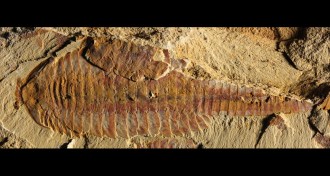 Paleontology
PaleontologyAncient crustacean had elaborate heart
The now-extinct Fuxianhuia protensa had a fancy cardiovascular system that sent blood to its limbs and organs, including its brain.
-
 Humans
HumansFather’s obesity linked to autism in children
A father-to-be’s body mass may be a greater risk factor for his child’s development of autism than the body mass of the mother.
-

-
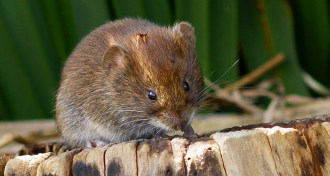 Genetics
GeneticsBank voles provide clue to prion disease susceptibility
A protein from bank voles makes mice susceptible to disorders that wouldn’t otherwise infect them.
-
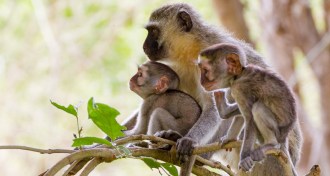 Animals
AnimalsYoung vervet monkeys look to mom when learning
Among vervet monkeys (Chlorocebus aethiops), behaviors are passed from mother to child, a new study finds.